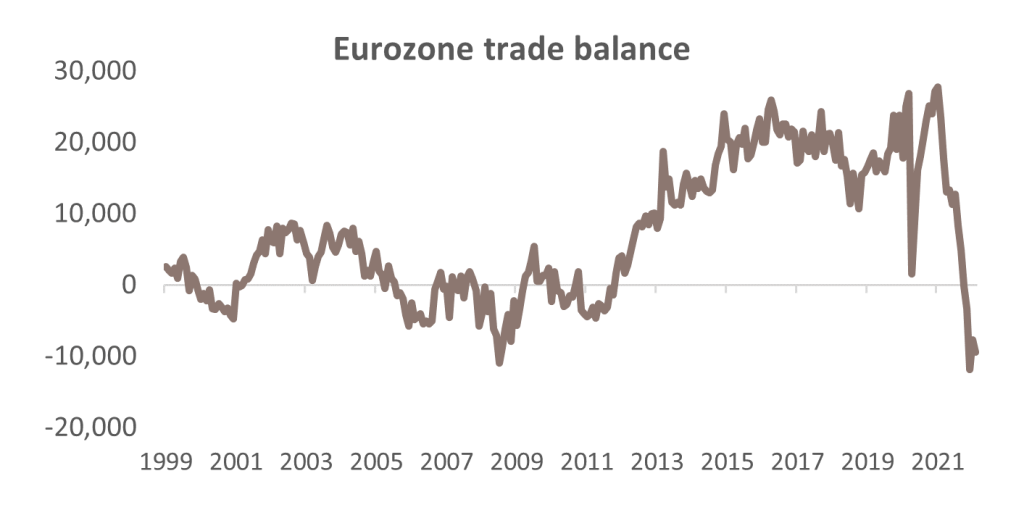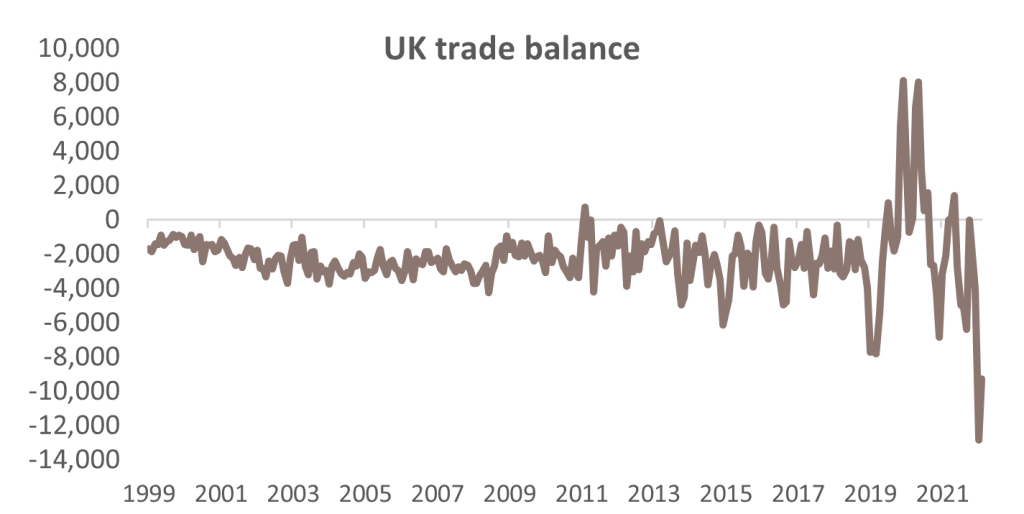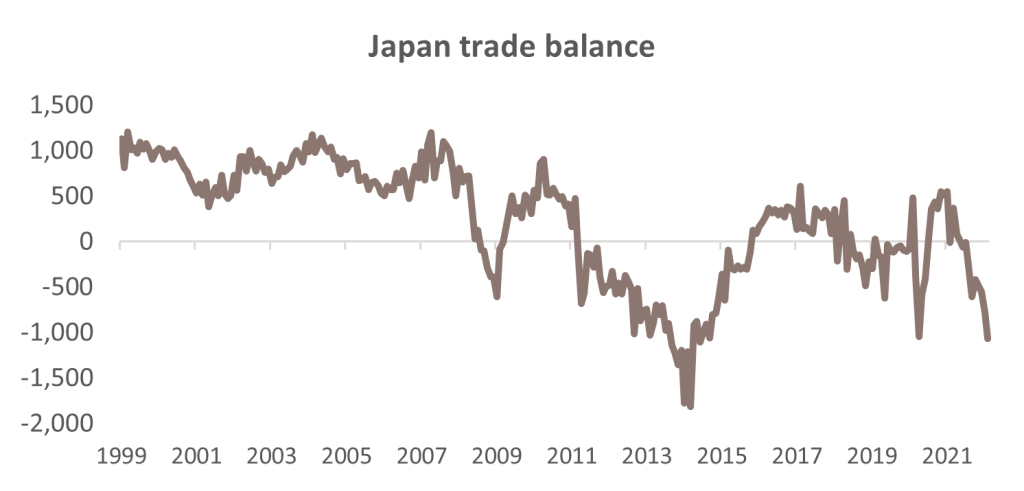
Introduction
The recent surge in commodity prices has contributed to an inflation acceleration across the globe, creating winners and losers.
The recent surge in commodity prices has contributed to an inflation acceleration across the globe. At the same time, higher commodity prices bring about a change in relative prices across the world economy and therefore their impact is not the same for all countries. For commodity exporters, such as Canada and Australia, the Terms of Trade (ToT) – the price of exports relative to the price of imports – are improving, making imports cheaper in terms of their output. But for commodity importers, the reverse is true: their imports are becoming more expensive in terms of domestic output, thereby making these countries relatively poorer.
Indeed, the deterioration of the ToT is having a very significant negative impact on the trade balance – the difference between the value of exports and imports of goods and services – of large commodity importers such as the Eurozone, the United Kingdom and Japan. As illustrated in the charts below, already in the three months to February – when in fact import prices were still lower than they are at the moment – the trade balance of both the Eurozone and the UK recorded their highest deficit in history. In Japan the trade balance has swung into a large deficit.



Net commodity importers like the Eurozone, United Kingdom and Japan have seen a marked deterioration in their trade balance.
Source: Bloomberg LLP, Fulcrum Asset Management LLP
For some commodity importing countries, namely smaller emerging countries, for example Sri Lanka at the moment, it is not always possible for a trade deficit to be financed. Nevertheless, for larger developed economies, in the short-term large trade deficits are inevitable, but in the longer term a long-lasting deterioration in the terms of trade will require a more painful real adjustment, involving lower consumption and a diversion of domestic output towards exports needed to pay for now more expensive imports. In such a circumstance, a currency weakening helps the adjustment process by making all imports more expensive and creates incentives to increase exports.
This material is for your information only and is not intended to be used by anyone other than you. Information provided does not constitute investment advice and should not be relied upon as a basis for investment decisions. Where necessary, speak to a financial advisor It is directed at professional clients and eligible counterparties only and is not intended for retail clients. The information contained herein should not be regarded as an offer to sell or as a solicitation of an offer to buy any financial products, including an interest in a fund, or an official confirmation of any transaction. Any such offer or solicitation will be made to qualified investors only by means of an offering memorandum and related subscription agreement. The material is intended only to facilitate your discussions with Fulcrum Asset Management as to the opportunities available to our clients. The given material is subject to change and, although based upon information which we consider reliable, it is not guaranteed as to accuracy or completeness and it should not be relied upon as such. The material is not intended to be used as a general guide to investing, or as a source of any specific investment recommendations, and makes no implied or express recommendations concerning the manner in which any client’s account should or would be handled, as appropriate investment strategies depend upon client’s investment objectives. Funds managed by Fulcrum Asset Management LLP are in general managed using quantitative models though, where this is the case, Fulcrum Asset Management LLP can and do make discretionary decisions on a frequent basis and reserves the right to do so at any point. Past performance is not a guide to future performance. Future returns are not guaranteed and a loss of principal may occur. Fulcrum Asset Management LLP is authorised and regulated by the Financial Conduct Authority of the United Kingdom (No: 230683) and incorporated as a Limited Liability Partnership in England and Wales (No: OC306401) with its registered office at Marble Arch House, 66 Seymour Street, London, W1H 5BT. Fulcrum Asset Management LP is a wholly owned subsidiary of Fulcrum Asset Management LLP incorporated in the State of Delaware, operating from 350 Park Avenue, 13th Floor New York, NY 10022.
©2022 Fulcrum Asset Management LLP. All rights reserved
FC064W 270422
About the Author
Filippo Cartiglia
Filippo is a member of the Investment Team. Before joining Fulcrum in 2020, he was the chief economist at Arrowgrass Capital Partners LLP. Prior to this, Filippo was Managing Director at Goldman Sachs, partner at Newman Ragazzi LLP, and an economist at the International Monetary Fund in Washington. Filippo graduated from Bocconi University in Milan in 1988 and gained a PhD in Economics from Columbia University in New York in 1992.

About the Author
Rahil Ram
Rahil Ram is a Director at Fulcrum Asset Management and is involved in portfolio strategy, portfolio implementation, research, sustainability and idea generation for the discretionary macro and thematic strategies. Prior to joining Fulcrum, Rahil was a strategist within the Asset Allocation team at Legal & General Investment Management for five years, during which time he completed his Masters’ in Actuarial Management from Cass Business School and qualified as an Actuary in 2017.




